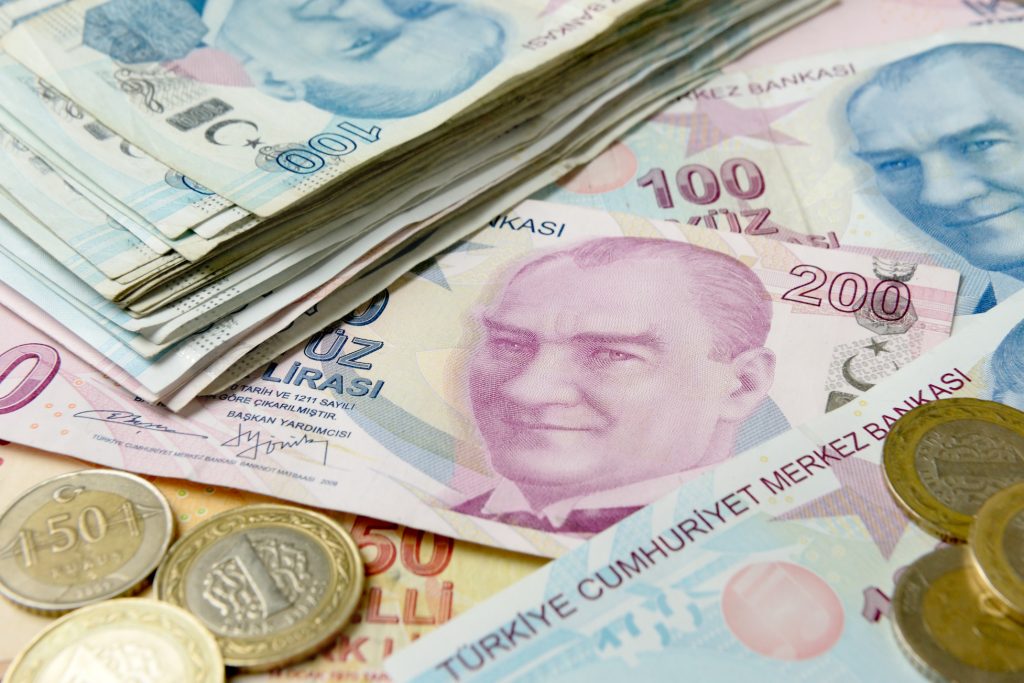After weeks of depreciation, the Turkish lira appears to have rallied back, closing at 4.66 against the US dollar on Monday. It follows Turkey’s central bank raising interest rates to try and prop up the embattled currency, which hit a record low of 4.9290 last week. Leading government officials also met with investors in Istanbul on Monday, 27 May, to try and restore confidence in the country’s monetary policies.
Following an extraordinary meeting of board members on Wednesday, 23 May, the Turkish central bank decided to increase its top interest rate by three percent to 16.5 percent. In a statement, the central bank said, “The current elevated levels of inflation and inflation predictions continue to pose risks on the [lira’s] pricing behaviour. Accordingly, the board decided to implement a strong monetary tightening to support price stability.”
Yesterday, Deputy Prime Minister Mehmet Şimşek and Central Bank Governor Murat Çetinkaya held a meeting with investors, pressing home the message that the Turkish government is committed to the market economy and will maintain the necessary fiscal discipline.
The Turkish lira has seen its value plunge since the start of the year, losing 17% since December 2017. The slump reflects investor concerns about the central bank’s ability to combat double-digit inflation, now running at 11%, and President Recep Tayyip Erdoğan’s increasing control over monetary policy.
President Erdoğan has steadfastly maintained his public position as the “enemy of interest rates”, preventing the central bank from taking appropriate action to check the Turkish lira’s decline despite clear evidence of the country’s overheating economy. His interference with the bank’s independence and the country’s continuing decline in democratic norms has pushed the lira into a freefall.
The daily loss of value, which at one-point last week saw 1 Pound sterling trade for 6.5 Turkish lira, made intervention by the central bank an unavoidable necessity. Analysts expect the central bank to implement a further tightening of fiscal policy at its 7 June meeting.
Analysts believe action is also needed to counter Turkey’s reliance on foreign funding sources. Although annual growth is predicted at 4%, 70% of the country’s account deficit is financed through short-term foreign debt, making it extremely vulnerable to external pressures. This, Erdoğan’s ever-tightening grip on the governance of Turkey, and geo-political risks continue to spook the markets.
Image: background of Turkish Lira banknotes © iStock / foto-ianniello




